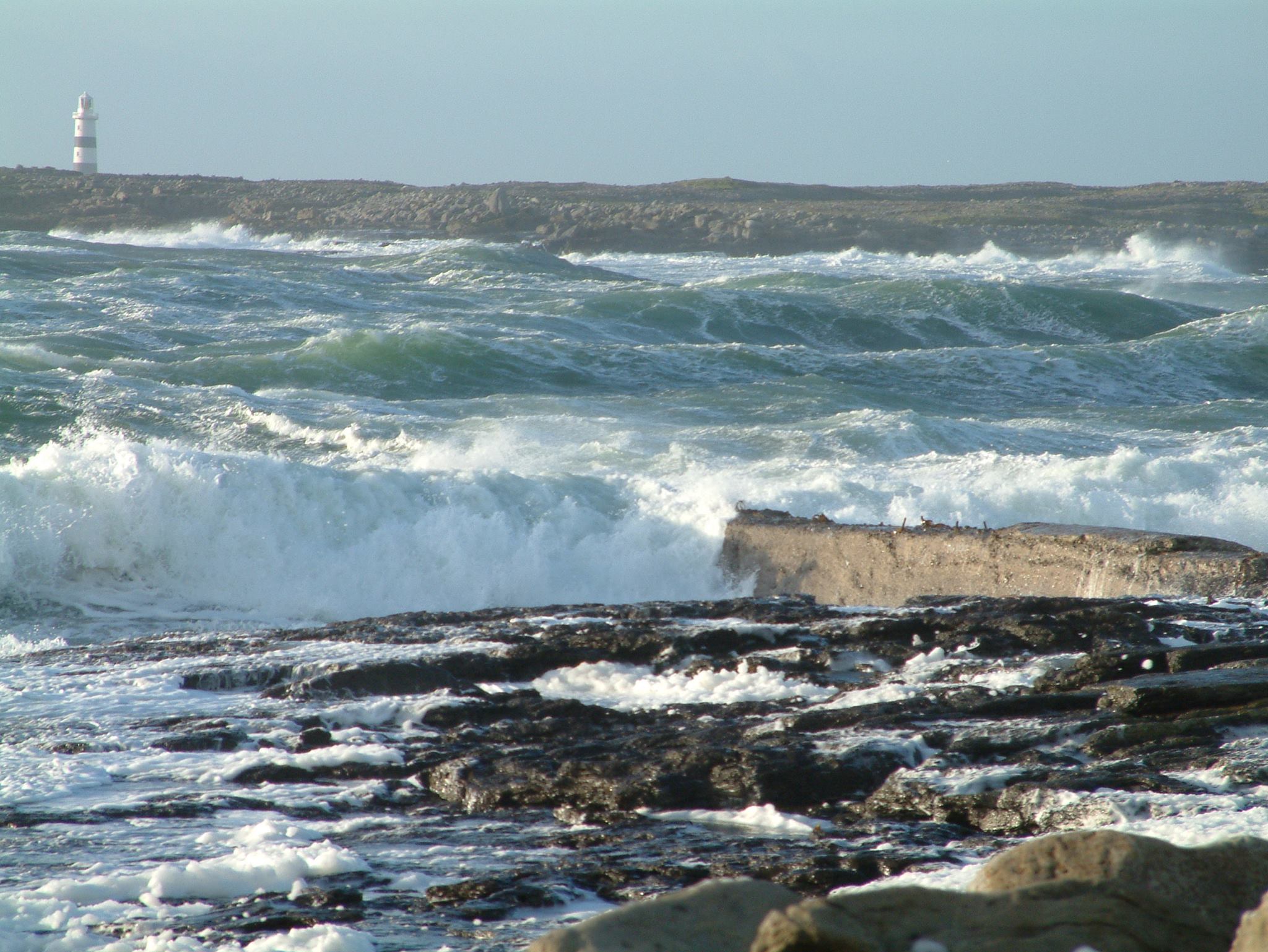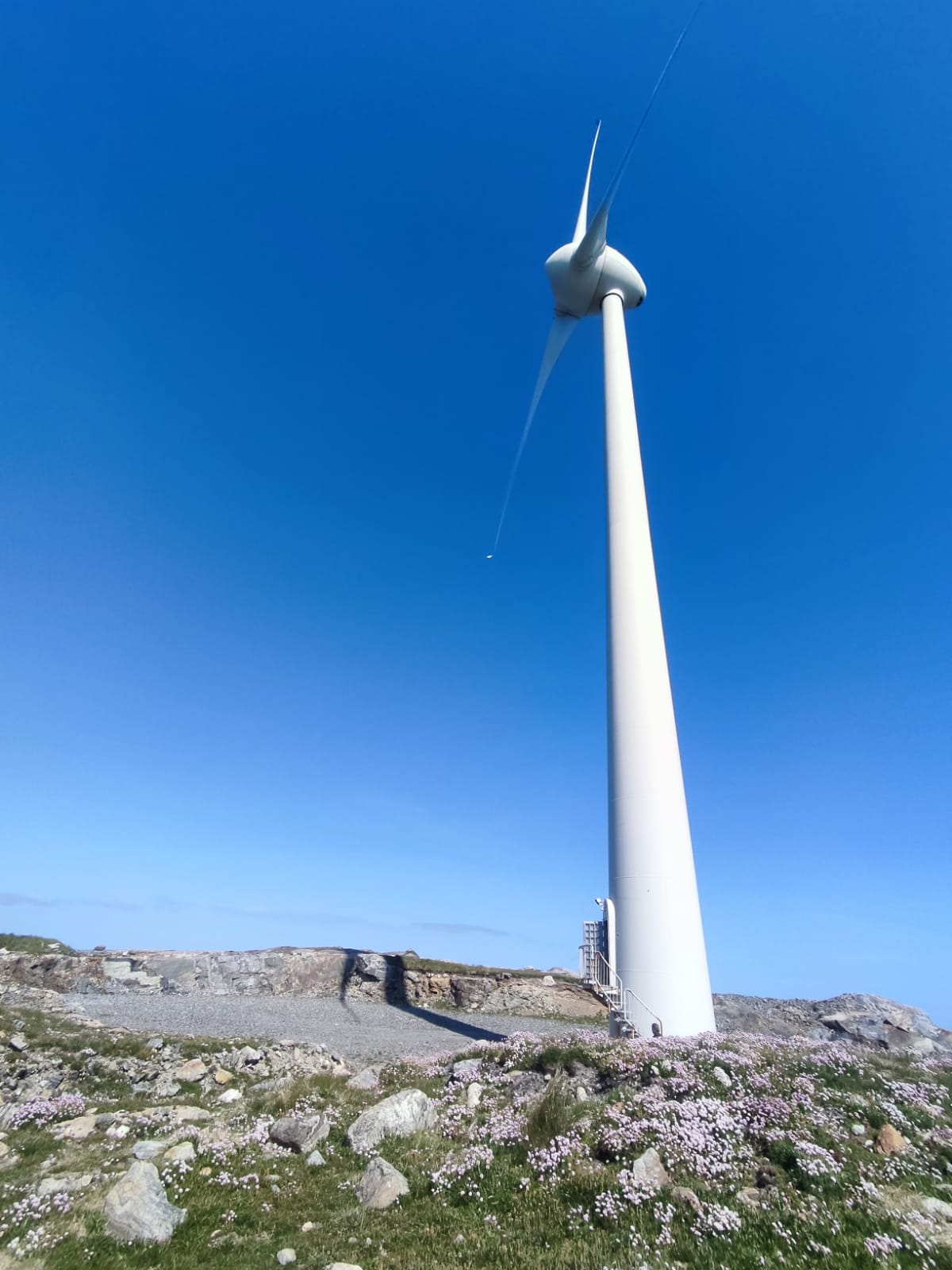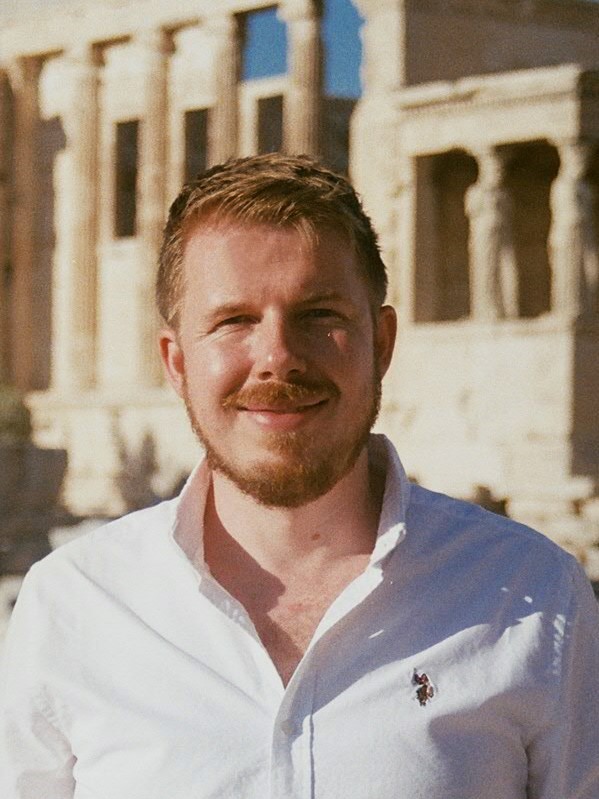
Many people engage in some form of energy citizenship, sometimes unknown to themselves. Communities on the Aran Islands are enthusiastically embracing the concept of energy citizenship through a civil society organisation that brings together the residents of the three islands with the aim of becoming self-sufficient in clean, locally owned energy from sun and wind, as well as helping to build the local economy of the islands. Their vision can pave the way for local economies globally.
In March 2024, University of Galway researchers Professor Frances Fahy, Dr Benjamin Schmid and Dr Michael Lydon were part of a joint policy brief in Brussels. The launch was held in LaVallée, a former industrial site built at the end of the 19th century which now houses a community of artists, creative entrepreneurs and forward thinkers who work to enable civic-led action in addressing socio-cultural, economic and environmental concerns. It was in many ways an ideal location to launch “Energy Citizenship in the Making: Pathways to support citizen engagement in the European energy transition”, a joint policy brief produced by four Horizon 2020 projects working on energy citizenship: DIALOGUES, ENCLUDE, EC2 and EnergyPROSPECTS.
Surrounded by the ghosts of Brussels’ industrial past, academics, industry leaders and others discussed how citizens and communities can support the European Energy Transition. The theme of the launch was that citizenship engagement is not just an individual responsibility, but also requires the support of the system it is intended to improve. This includes rethinking the rights and responsibilities of all stakeholders in the energy transition. Our researchers were present as part of EnergyPROSPECTS, a University of Galway-led pan-European project that aimed to develop an innovative conceptual framework to better understand energy citizenship in Europe. They discussed how some Irish communities are leading the way in restoring people’s sense of agency in the energy transition. One community central to this discussion is the Aran Islands Energy Co-operative (Comharchumann Fuinnimh Oileáin Árann Teoranta, CFOÁT).

Let us look first at EnergyPROSPECTS, and University of Galway’s leading role in highlighting the importance of energy citizenship. The EnergyPROSPECTS project consortium included nine research partners (universities, research institutes, enterprises and NGOs) from Ireland, Belgium, Hungary, the Netherlands, Bulgaria, France, Latvia, Germany and Spain. The project ran for three years, from May 2021 to April 2024. Project lead Prof. Fahy notes: “I am extremely proud to work in our world-class university, which has embraced Sustainability as one of its core values. University of Galway is making great strides in tackling society’s evolving sustainable development challenges and we are working to develop our graduates as future sustainability leaders.”
“In the Ryan Institute in Galway we are leading the way in energy social science research internationally and the EnergyPROSPECTS project represents one of these cutting-edge European projects which is working to progress a number of Sustainable Development Goals (SDGs) including SDG7, Affordable and Clean Energy and SDG11, Sustainable Cities and Communities.”
While the term “energy citizenship” does not yet appear to be used widely in public discourse, in the policy area it is often referred to in connection with energy prosumerism (the concept of being both a producer and consumer of energy) and energy communities. EnergyPROSPECTS broadened this to include further forms of individual and collective engagement with the energy system. This can include using energy-saving appliances, choosing renewable energy solutions, and even taking part in political processes.
In many ways, energy citizenship can be seen as a missing piece of the energy transition puzzle. Despite the European Energy Union’s vision of putting citizens at the core of the transition, much remains to be done to ensure that the pathway toward carbon neutrality is inclusive and provides opportunities and benefits for all. That is why energy citizenship matters, as it shows individuals and communities are placing themselves at the core of energy transition (consciously or unconsciously).
In summary, many people engage in some form of energy citizenship, even if they are not aware of it. It is a means by which people can be active participants in energy systems. This is crucial as it reframes citizens from passive recipients of the energy transition to active initiators.
EnergyPROSPECTS, and University of Galway’s role in examining the importance of energy citizenship, creating a database of 596 cases of energy citizenship from across Europe. The database is presented as an interactive map that shows the scope of energy citizenship in Europe. As part of this process, University of Galway researchers selected 20 cases from Ireland. These include examples of individual energy citizenship, such as Lorna Gold (author, lecturer and climate activist) and Paul Kenny (former CEO of the Tipperary Energy Agency), and collective energy citizenship, such as the Dublin Cycling Campaign and Ringsend Irishtown Sustainable Energy Community (RISEC). Five cases from Ireland were selected for in depth analysis:
Dr Schmid notes that in recent years, energy citizenship in Ireland has evolved: “[there has been] an expansion of energy citizenship from the private dimension, where it is about empowerment in one’s own energy practices, to a public dimension, where citizenship takes the form of sharing in self-government”. This expansion is evident in all the Irish cases we analysed in depth. CFOÁT is a clear example of this empowerment and of an Irish community leading the way in restoring people’s sense of agency in the energy transition.
CFOÁT is a civil society organisation that brings together the residents of the three Aran Islands, Inis Mór, Inis Meáin and Inis Oírr, with a view to becoming self-sufficient in clean, locally owned energy and helping to build the local economy of the islands. CFOÁT was created in 2012 out of an initiative of existing local development organisations. At the beginning, it relied on funding for community retrofit measures and construction of photovoltaic systems for households from Sustainable Energy Authority of Ireland (SEAI) programmes and EU projects. Founded in 2002, SEAI is a state-funded agency that provides policy advice and programme implementation; it also established the Sustainable Energy Communities model, which is defined as “partnerships between public, private and community sectors whose goal is centred on renewable energy or energy efficiency”.
For CFOÁT, engaging with such initiatives is a significant benefit in terms of energy citizenship. Yet, it is also a means to an end for various overarching community goals, such as creating jobs, stabilising the population on the islands, and even preserving the language and culture. Dara Ó Maoildhia, Chairman of CFOÁT, notes “in the beginning, we had a real struggle to have enough money simply to keep going, to pay the accountant and other annual costs”. But, today, with the support of the islands’ communities, Údarás na Gaeltachta and SEAI, the Cooperative is inspiring others through training programmes for other small communities interested in the energy transition. As Ó Maoildhia notes: “Our co-op here has a vision which entails a sort of a revolution in local economies […] rural local economies, until now have been dependent on jobs being brought in from outside and created in order to keep those communities alive … what we’re saying now is with energy available around us in the environment, through the wind or the sun … local communities have the opportunity to have their own source of energy and use that prosperity … to create jobs locally.” In doing so, they are inspiring others.

Profiles

Benjamin Schmid is a Postdoctoral Researcher at the Department of Geography at University of Galway. In his research, he is interested in questions around democratic governance of the energy transition, citizen participation as well as configurative methodologies. Benjamin previously worked as a Research Associate at the Zurich University of Applied Sciences and as a doctoral student at the Swiss Federal Research Institute WSL. He holds a Bachelor’s in Political Science from the University of Lucerne, a Master’s in Sustainable Development from the University of Basel and a Ph.D. in Economic Geography from the University of Bern.